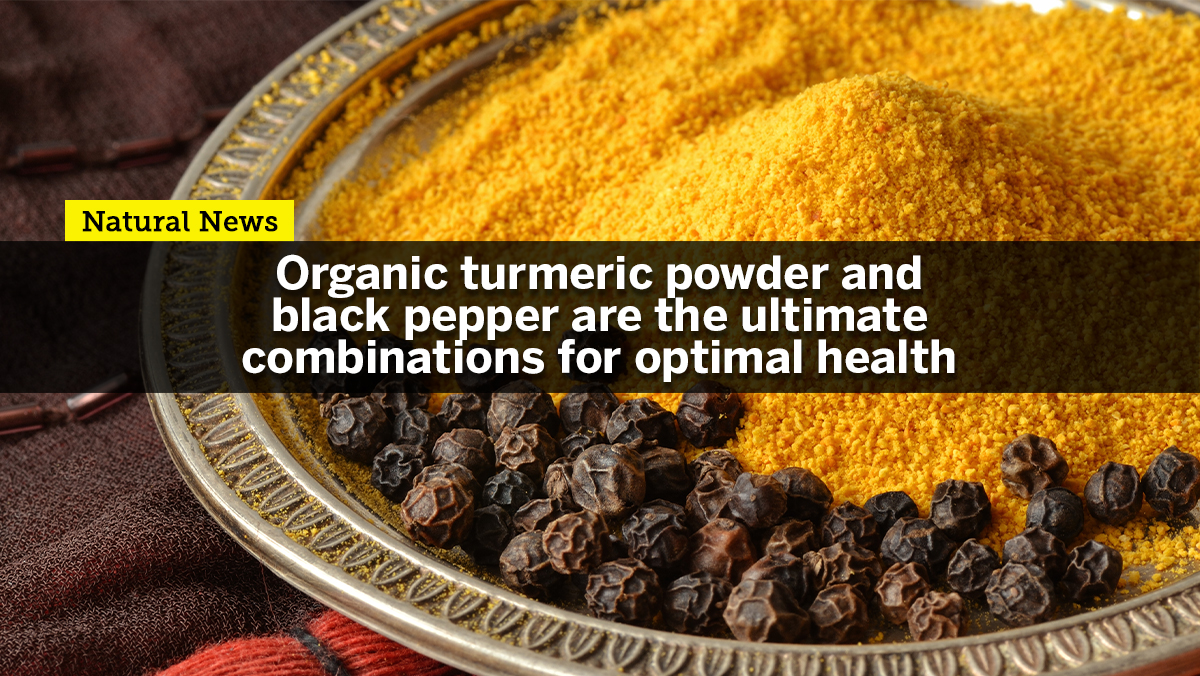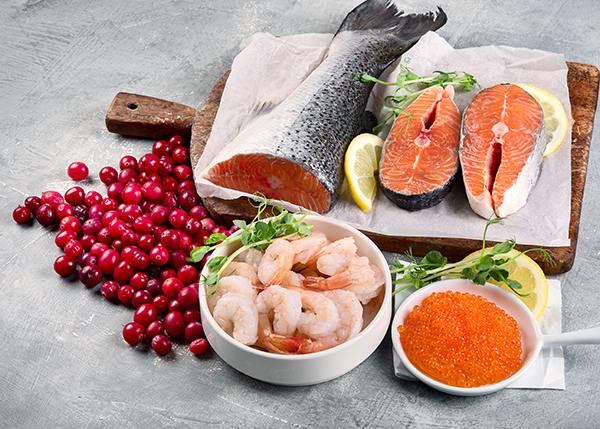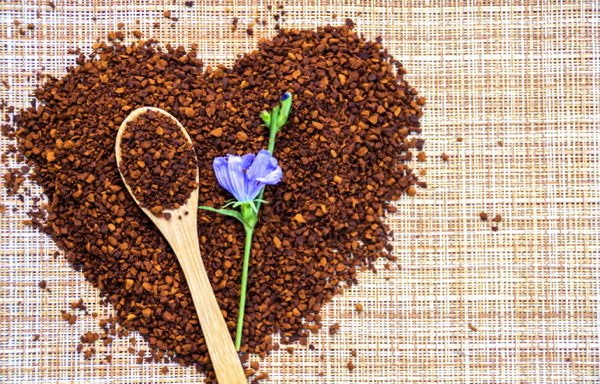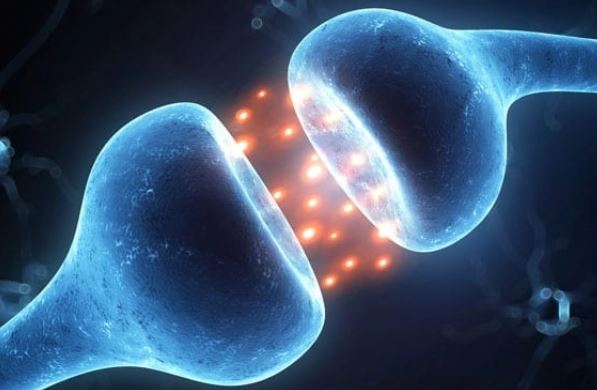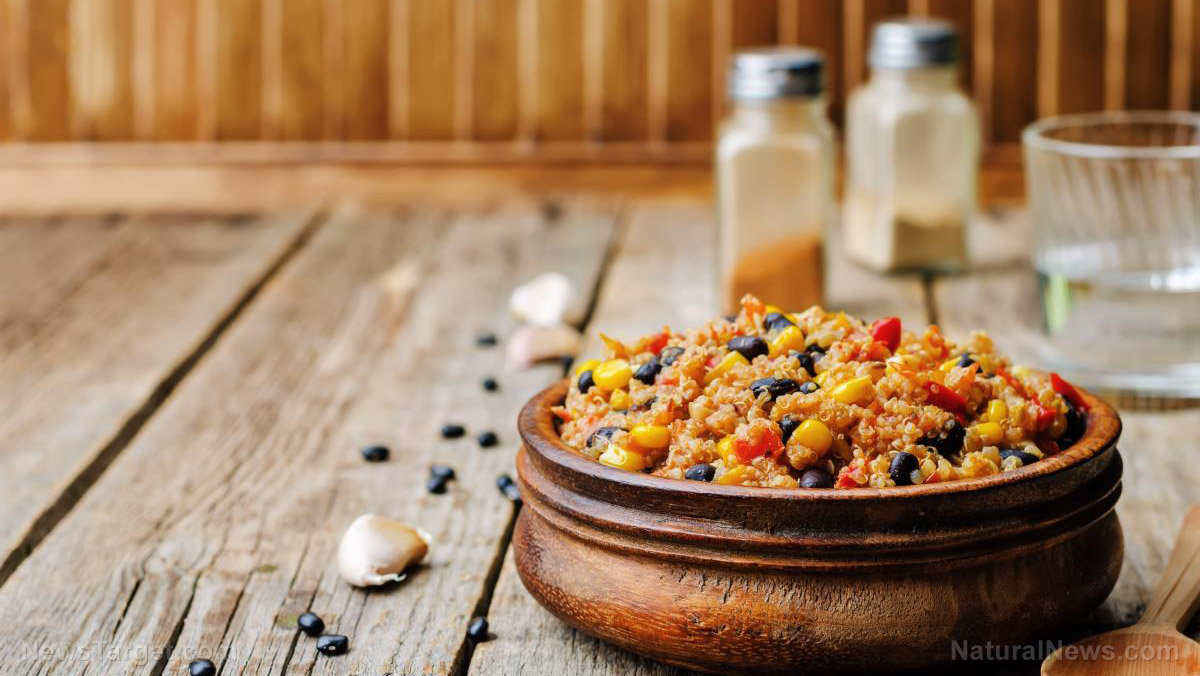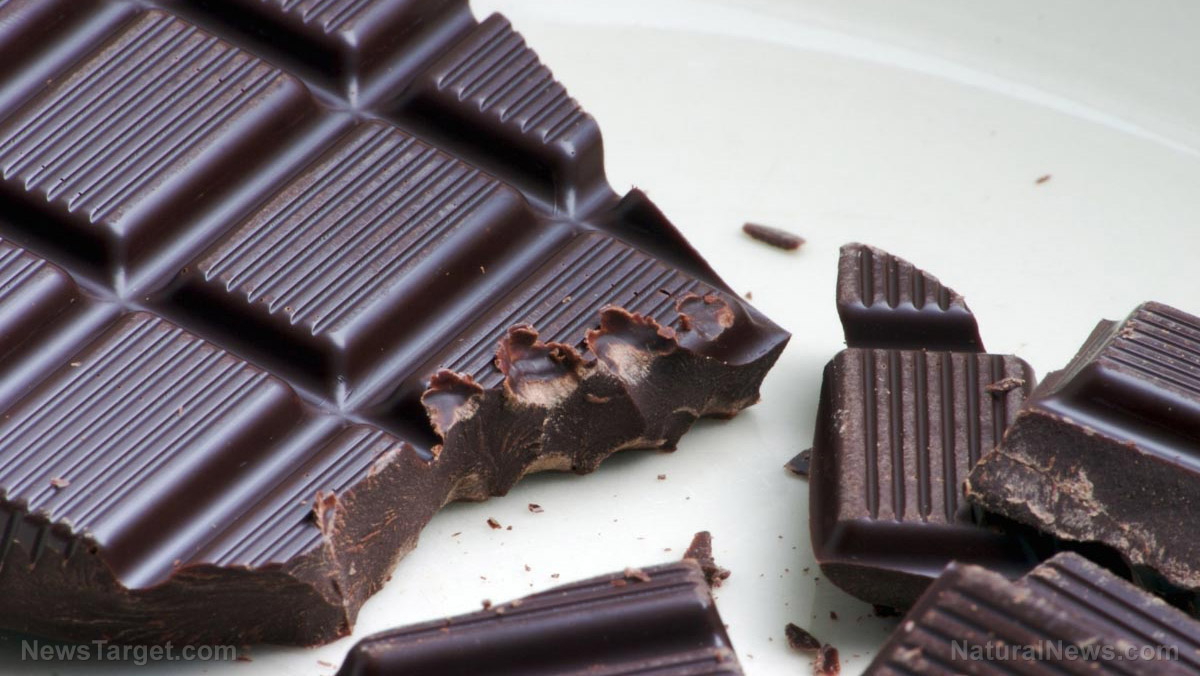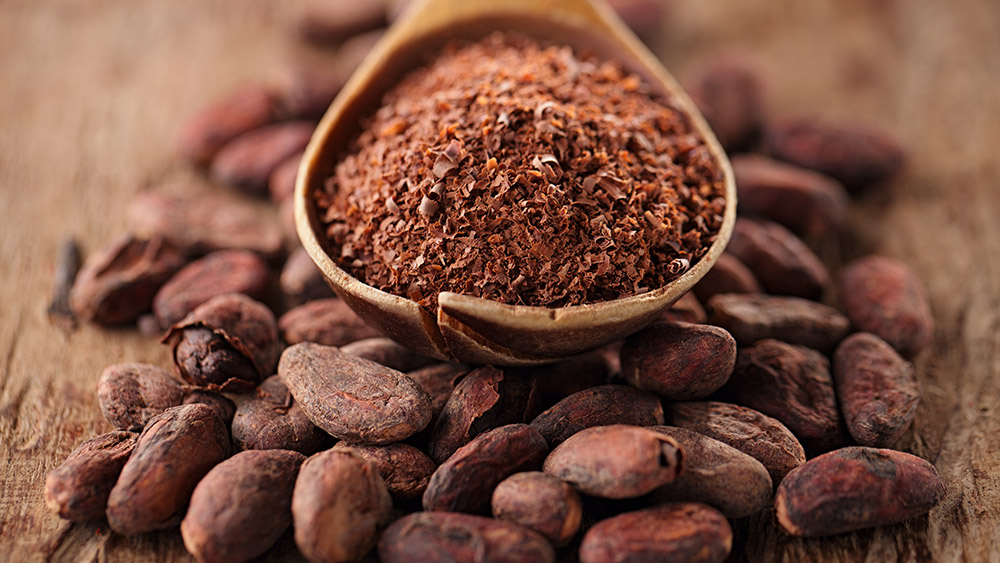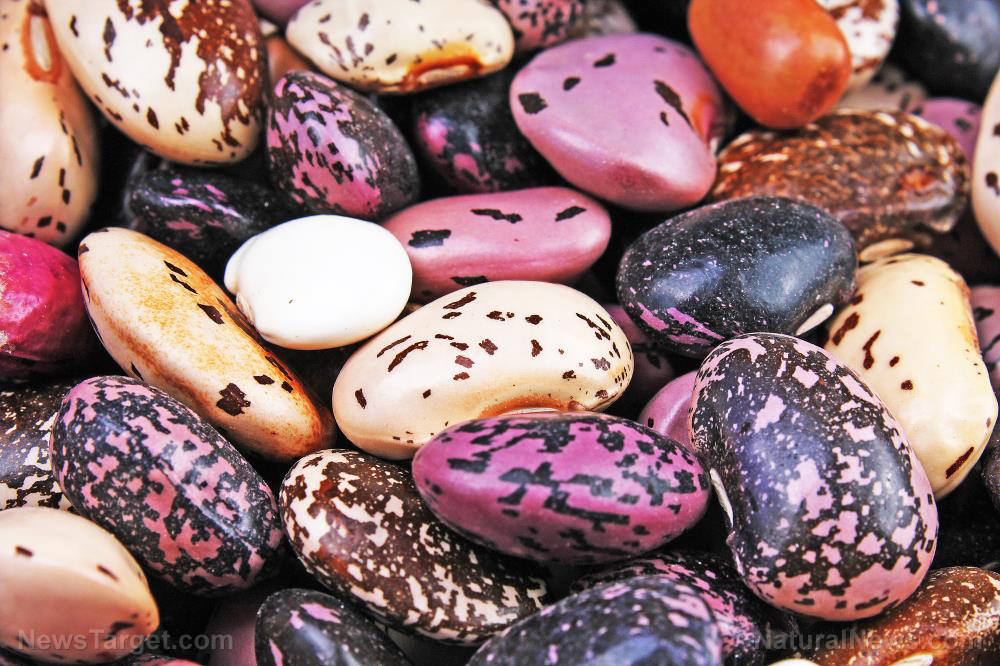Anti-inflammatory dietary choices from these specific diets reduce DEMENTIA RISK
09/15/2025 / By Lance D Johnson

A groundbreaking 15-year Swedish study has revealed that what you eat doesn’t just fuel your body; it could be the most powerful weapon against the creeping threat of dementia and chronic disease. The research, tracking over 2,400 older adults, found that certain dietary patterns—like the Mediterranean-DASH Intervention for Neurodegenerative Delay (MIND) diet—slowed the accumulation of illnesses linked to aging, particularly those affecting the brain and heart. Meanwhile, diets heavy in processed foods and inflammatory ingredients sped up cognitive decline, proving that every bite counts in the battle for long-term health.
Key points:
- Diet shapes disease: The MIND, AHEI, and Mediterranean diets dramatically slowed the progression of chronic diseases, while inflammatory diets accelerated decline.
- Brain under siege: Neuropsychiatric conditions like Alzheimer’s, Parkinson’s, and depression were strongly influenced by diet—anti-inflammatory foods acted as shields, while processed foods worsened damage.
- Gender differences: Women saw stronger cardiovascular benefits from healthy diets, but brain protection was universal.
- Inflammation is the enemy: Chronic inflammation, fueled by poor dietary choices, emerged as a key driver of accelerated aging and cognitive decline.
- It’s never too late: Even in advanced age, dietary changes could still slow disease progression, offering hope for preserving independence and mental clarity.
The diets that defy aging
For decades, Alzheimer’s and dementia were seen as inevitable consequences of aging—genetic time bombs waiting to detonate. But the latest science paints a different picture: while genes load the gun, lifestyle pulls the trigger. The Swedish study examined four dietary patterns, each with starkly different impacts on health:
MIND diet: A fusion of Mediterranean and DASH diets, emphasizing leafy greens, berries, nuts, fish, and olive oil while minimizing red meat and processed sweets. Participants following this diet saw the slowest accumulation of brain-related diseases.
Alternative Healthy Eating Index (AHEI): Focused on organic fruits, vegetables, whole grains, and healthy fats while avoiding sugar and processed meats.
Alternative Mediterranean Diet (AMED): Adapted for non-Mediterranean populations, prioritizing vegetables, whole grains, fish, and olive oil.
Empirical Dietary Inflammatory Index (EDII): The “danger diet”—packed with processed foods, sugary drinks, and inflammatory meats, accelerating cognitive and cardiovascular decline.
The findings were undeniable: those adhering to the MIND, AHEI, or AMED diets aged slower, while EDII eaters faced a faster march toward dementia and heart disease.
Why your brain is starving for the right food
The brain is the hungriest organ in the body, consuming 20% of the body’s energy despite making up only 2% of its weight. Yet modern diets—loaded with refined sugars, processed fats, and chemical additives—deprive it of the nutrients it desperately needs.
Chronic inflammation, driven by poor dietary choices, acts like a slow-burning fire in the brain, damaging neurons and accelerating cognitive decline. Meanwhile, anti-inflammatory foods—like omega-3-rich fish, antioxidant-packed berries, and polyphenol-loaded olive oil—act as firefighters, quenching the flames and preserving mental function.
The study also highlighted a crucial link between heart and brain health: foods that protect the cardiovascular system—like leafy greens and healthy fats—also shield the mind from degeneration.
The food prescription for a sharper future
The evidence is clear: diet isn’t just about staying trim—it’s about safeguarding your mind. Here’s how to eat for lifelong cognitive vitality:
- Load up on brain boosters: Organic leafy greens, berries, nuts, wild-caught fish, and extra virgin olive oil.
- Ditch the brain killers: Sugar, refined carbs, fried foods, and processed meats.
- Protect your gut: Probiotics and fiber-rich foods reduce systemic inflammation, which harms the brain.
- Think long-term: Every meal is an investment in future mental clarity—prioritize whole, unprocessed foods.
The Mediterranean diet emphasizes whole, unprocessed foods rich in polyphenols, omega-3s, and antioxidants, all of which combat chronic inflammation—the root cause of pain, arthritis, heart disease, and autoimmune disorders.Here’s a list of 20 foods eaten in the Mediterranean diet that offer anti-inflammatory benefits to help stave off dementia:
- Extra virgin olive oil: High in oleocanthal, a natural anti-inflammatory compound similar to ibuprofen, while also supporting cardiovascular health.
- Fatty fish (salmon, sardines, mackerel): Rich in omega-3 fatty acids (EPA & DHA), which reduce inflammation and protect against chronic disease.
- Turmeric: Contains curcumin, a potent anti-inflammatory and antioxidant that helps alleviate joint pain and oxidative stress.
- Garlic: Contains allicin, which reduces inflammation and supports immune function by fighting harmful pathogens.
- Leafy greens (spinach, kale, swiss chard): High in vitamin K, flavonoids, and carotenoids, which fight oxidative stress and support detoxification.
- Tomatoes: Rich in lycopene, a powerful antioxidant that reduces inflammation and protects against cellular damage.
- Berries (blueberries, strawberries, raspberries): Packed with anthocyanins, which lower inflammatory markers and improve cognitive function.
- Nuts (walnuts, almonds, pistachios): High in healthy fats, magnesium, and polyphenols, reducing inflammation and supporting brain health.
- Dark chocolate (85%+ cocoa): Contains flavonoids that improve vascular health and reduce inflammation while boosting mood.
- Green tea: Rich in EGCG (epigallocatechin gallate), which suppresses inflammatory pathways and enhances metabolism.
- Red wine (in moderation): Contains resveratrol, which lowers inflammation and supports heart health by improving circulation.
- Whole grains (oats, quinoa, farro): High in fiber, which reduces gut inflammation and supports microbiome health for better digestion.
- Citrus fruits (oranges, lemons, grapefruit): Rich in vitamin C and flavonoids, which combat oxidative stress and strengthen immunity.
- Pomegranates: Contains punicalagins, antioxidants that reduce joint inflammation and improve arterial health.
- Mushrooms (shiitake, maitake, reishi): Rich in beta-glucans, which modulate immune response and lower inflammation naturally.
- Legumes (chickpeas, lentils, beans): High in fiber and polyphenols, reducing inflammatory gut bacteria and stabilizing blood sugar.
- Culinary herbs (rosemary, thyme, oregano): Contain carnosic acid and rosmarinic acid, which fight inflammation and enhance flavor without toxins.
- Fermented foods (greek yogurt, kefir, sauerkraut): Probiotics improve gut health, reducing systemic inflammation and supporting immune resilience.
- Red bell peppers: High in vitamin C and capsaicin, which reduce pain and inflammation while boosting collagen production.
- Grapes (especially red/purple varieties): Contain resveratrol and quercetin, which lower inflammatory cytokines and support longevity.
In a world where Big Pharma pushes expensive, often ineffective drugs for dementia prevention, the most powerful treatment might be the simplest: real food. While researchers scramble for pharmaceutical breakthroughs, the Swedish study suggests that the best medicine has been hiding in plain sight—on our plates.
The choice is yours: Will your next meal speed you toward decline—or defend your brain for decades to come?
Sources include:
Submit a correction >>
Tagged Under:
Alzheimer's prevention, anti-inflammatory diet, antioxidants, brain health, chronic disease, cognitive decline, dementia prevention, dietary patterns, food cures, grocery cures, healthy aging, heart health, longevity, Mediterranean diet, mental, mind body science, MIND diet, natural health, natural medicine, neurodegenerative diseases, nutrition science, omega-3 benefits, organic eating, prevention
This article may contain statements that reflect the opinion of the author
RECENT NEWS & ARTICLES
Antioxidants.News is a fact-based public education website published by Antioxidants News Features, LLC.
All content copyright © 2018 by Antioxidants News Features, LLC.
Contact Us with Tips or Corrections
All trademarks, registered trademarks and servicemarks mentioned on this site are the property of their respective owners.



